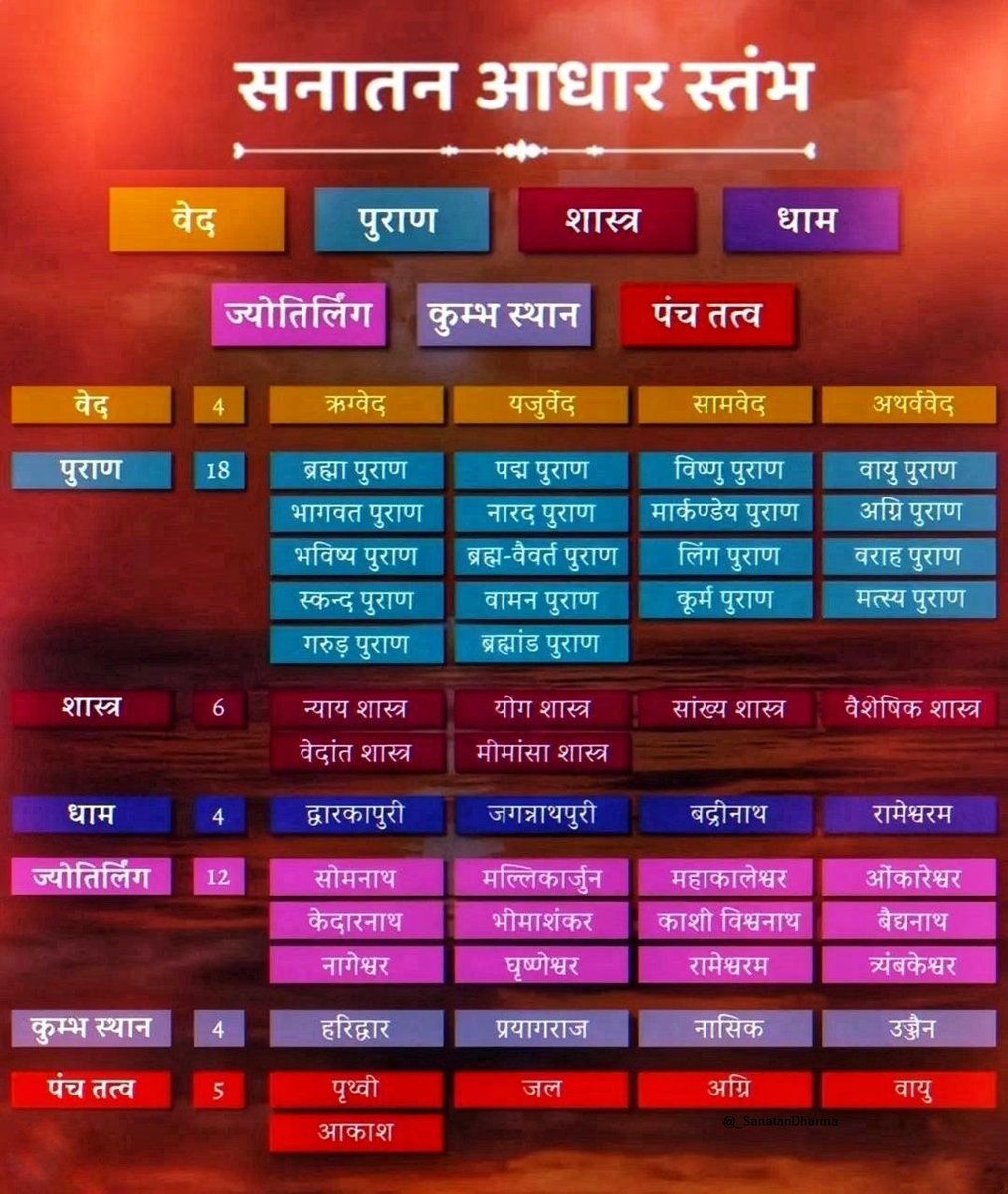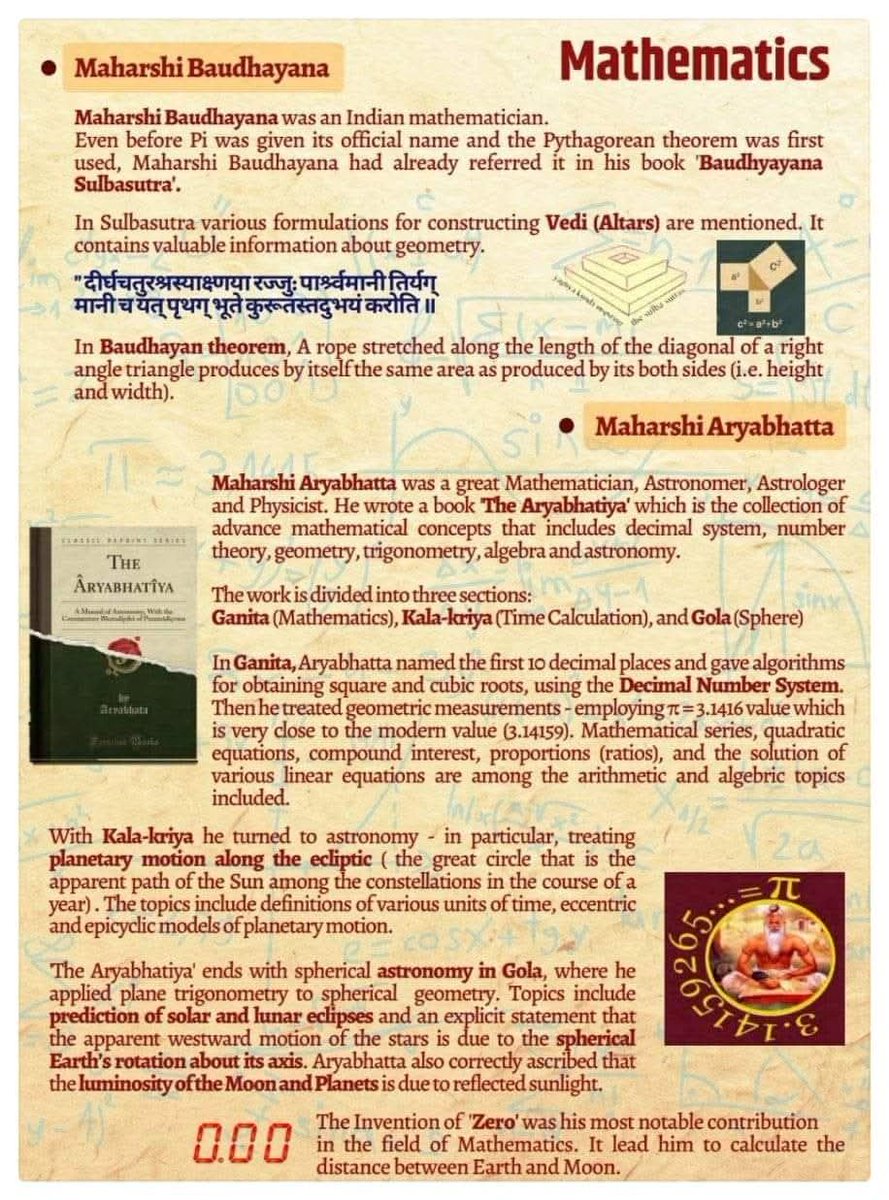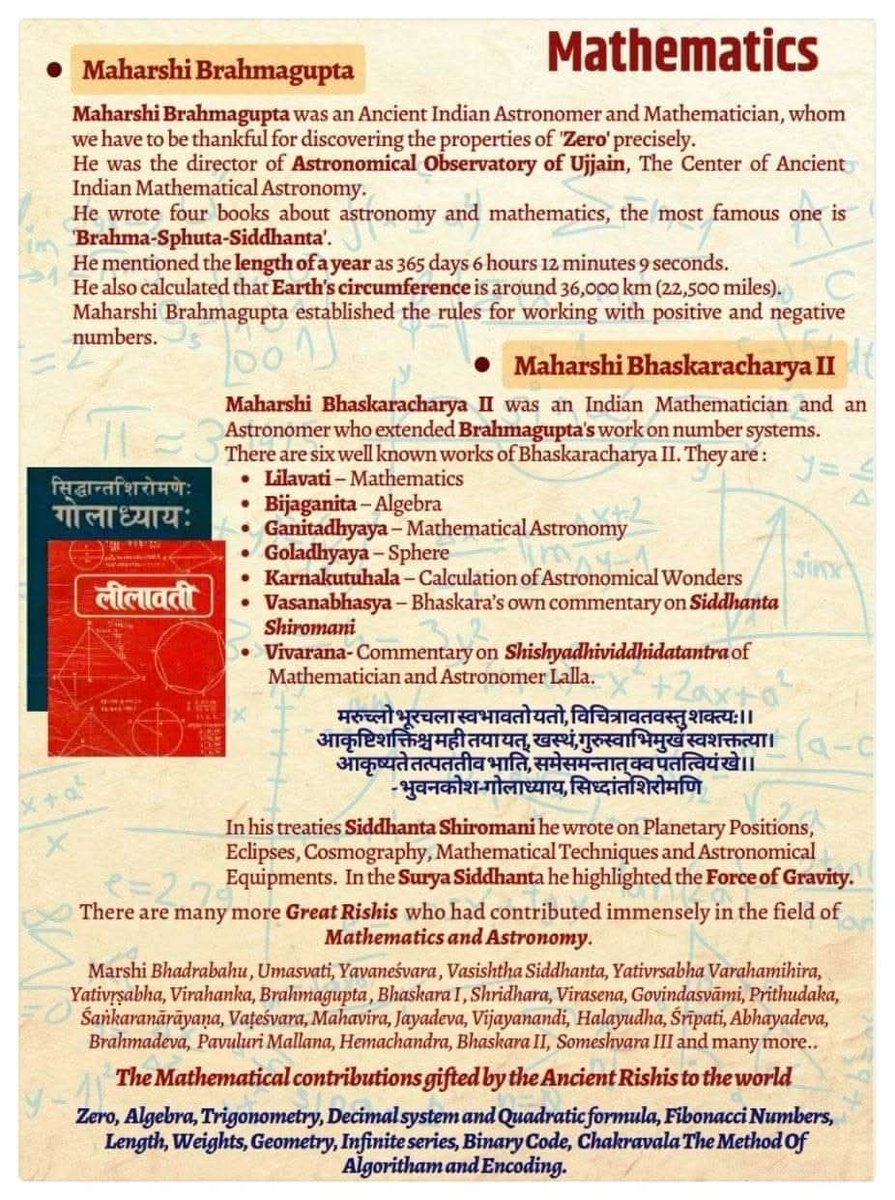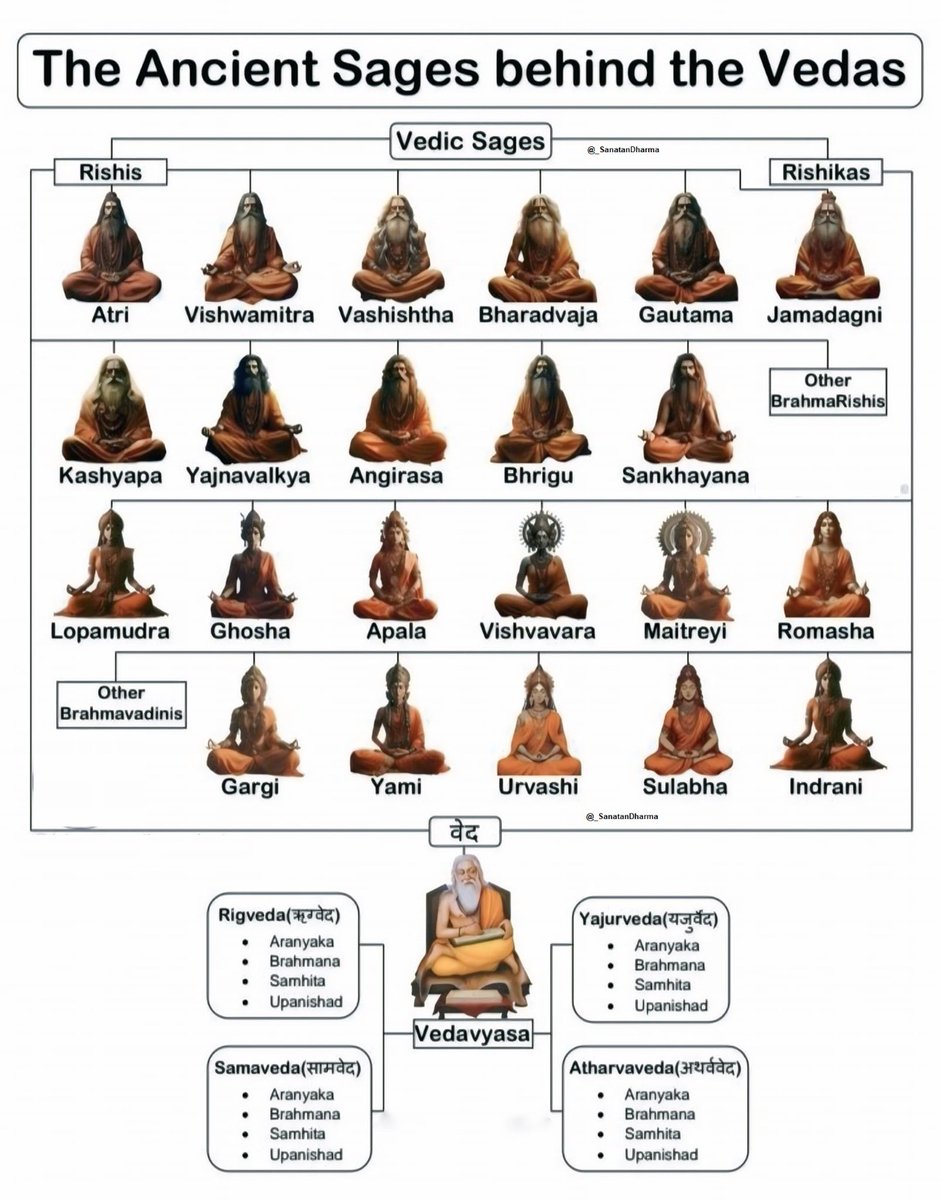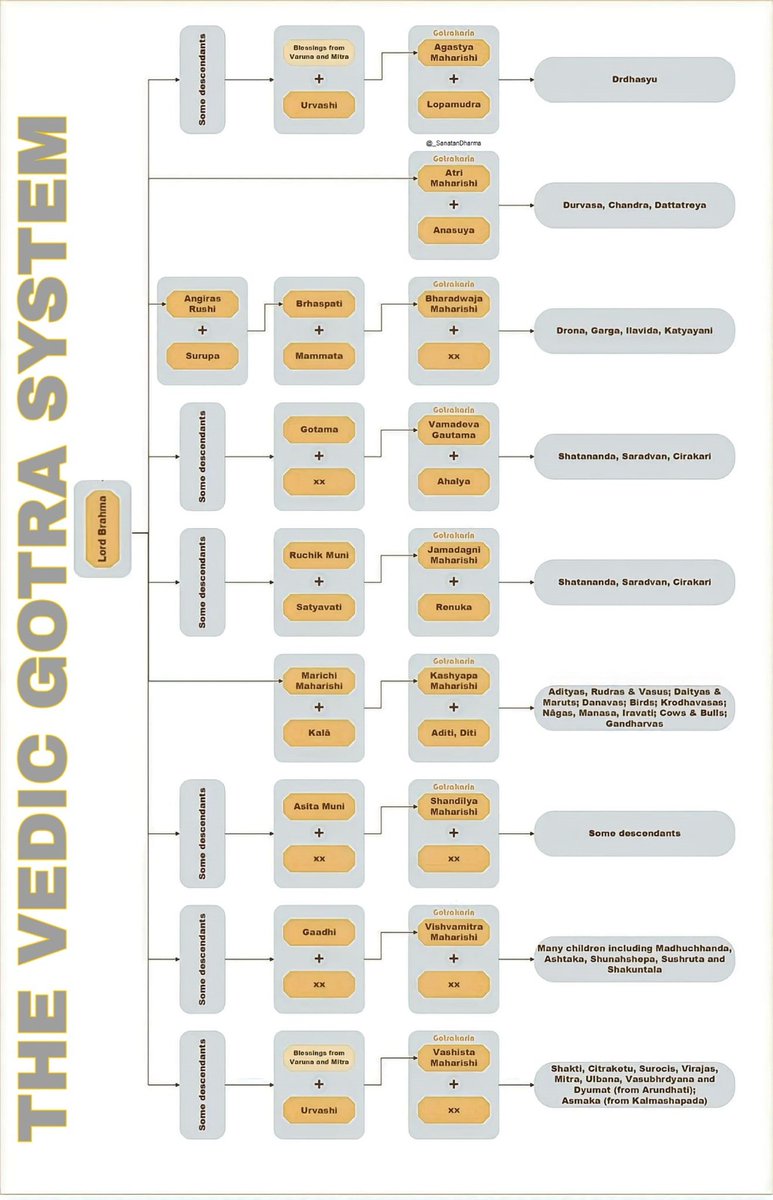Who is a Rishi, Muni, Sadhu, Sant, Yogi, Sanyasi & Devarshi?
Not all spiritual seekers are the same.
Their roles, goals, and powers are vastly different- yet deeply connected.
🧵#Thread Let’s explore the divine spectrum of ancient Indian sages & mystics.👇
Not all spiritual seekers are the same.
Their roles, goals, and powers are vastly different- yet deeply connected.
🧵#Thread Let’s explore the divine spectrum of ancient Indian sages & mystics.👇

1. RISHI (ऋषि) –The Seer of Truth Rishis are those who have “seen” the truth through deep meditation.
They are mantra-drashtas-visionaries who received Vedic knowledge directly from the universe.
Example: Vashishtha, Vishwamitra
Contribution: Vedas, Upanishads, Dharma Shastras.
They are mantra-drashtas-visionaries who received Vedic knowledge directly from the universe.
Example: Vashishtha, Vishwamitra
Contribution: Vedas, Upanishads, Dharma Shastras.
2. MUNI (मुनि) – The Silent Thinker A Muni is a sage who lives in silence (mauna), deeply absorbed in thought, contemplation, and self-discipline.
They seek truth through inner reflection, rather than action or teaching.
Example: Lomas Muni, Nara-Narayana
Often wanderers & loners.
They seek truth through inner reflection, rather than action or teaching.
Example: Lomas Muni, Nara-Narayana
Often wanderers & loners.
3. SADHU (साधु) – The Renunciate of the World.
A Sadhu leaves behind all material attachments and dedicates life to sādhanā (spiritual practice).
They travel, meditate, chant, and live austere lives to burn karma and awaken the soul.
Seen across India, from Himalayas to Kumbh Mela,No possessions, no ego.
A Sadhu leaves behind all material attachments and dedicates life to sādhanā (spiritual practice).
They travel, meditate, chant, and live austere lives to burn karma and awaken the soul.
Seen across India, from Himalayas to Kumbh Mela,No possessions, no ego.
4. SANT (संत) – The Saint Who Spreads Bhakti.
A Sant is devoted to divine love (bhakti) and serves as a spiritual teacher.
Sants guide society, chant the Lord’s name, and emphasize love, peace, equality, and surrender.
Example: Kabir, Tukaram, Mirabai, Tulsidas
Spiritual leaders of the masses.
A Sant is devoted to divine love (bhakti) and serves as a spiritual teacher.
Sants guide society, chant the Lord’s name, and emphasize love, peace, equality, and surrender.
Example: Kabir, Tukaram, Mirabai, Tulsidas
Spiritual leaders of the masses.
5. SANYASI (सन्यासी) – The Renouncer of Identity.
A Sanyasi has formally taken Sanyas Ashram-renouncing name, family, ego, even desires.
They belong to none, yet serve all.
Their goal: Moksha (liberation), not society or fame.
Live in forests, caves, or as silent wanderers
Symbol of complete detachment.
A Sanyasi has formally taken Sanyas Ashram-renouncing name, family, ego, even desires.
They belong to none, yet serve all.
Their goal: Moksha (liberation), not society or fame.
Live in forests, caves, or as silent wanderers
Symbol of complete detachment.
6. YOGI (योगी) – Master of Union (Yoga)
Yogis follow the path of union -of soul (Atma) with Supreme (Paramatma).
Through Ashtanga Yoga (8-fold path), they gain inner mastery, supernatural powers, and liberation.
Example: Patanjali, Matsyendranath
Deep meditation, pranayama, tapas.
Yogis follow the path of union -of soul (Atma) with Supreme (Paramatma).
Through Ashtanga Yoga (8-fold path), they gain inner mastery, supernatural powers, and liberation.
Example: Patanjali, Matsyendranath
Deep meditation, pranayama, tapas.
7. DEVARSHI (देवर्षि) – The Divine Sage Among Gods.
A Devarshi is a celestial sage, enlightened and immortal, moving between Lokas.
They are messengers of divine will, and possess both knowledge & siddhis (powers).
Example: Narada Muni
Travel freely between Earth, Heaven, and beyond.
A Devarshi is a celestial sage, enlightened and immortal, moving between Lokas.
They are messengers of divine will, and possess both knowledge & siddhis (powers).
Example: Narada Muni
Travel freely between Earth, Heaven, and beyond.
8. How Are They Different Yet United?
Role- Focus-Goal
Rishi Truth Revelation Universal Knowledge.
MuniSilence & Tapasya Realization.
Sadhu Renunciation Spiritual Growth.
Sant Bhakti & Preaching Social Awakening.
SanyasiDetachment Liberation.
YogiYoga & Mastery Union with Divine.
Devarshi Celestial Wisdom Divine Mission.
Role- Focus-Goal
Rishi Truth Revelation Universal Knowledge.
MuniSilence & Tapasya Realization.
Sadhu Renunciation Spiritual Growth.
Sant Bhakti & Preaching Social Awakening.
SanyasiDetachment Liberation.
YogiYoga & Mastery Union with Divine.
Devarshi Celestial Wisdom Divine Mission.
9. Sanatan Dharma’s Beauty: Diversity in Spirituality.
From Rishis who saw Vedic mantras.
To Sants who sang divine love,
From Yogis in caves…
To Sadhus on roads…
Each path is sacred,
Each role is divine.
You don’t need to fit one-the soul finds its own rhythm.
From Rishis who saw Vedic mantras.
To Sants who sang divine love,
From Yogis in caves…
To Sadhus on roads…
Each path is sacred,
Each role is divine.
You don’t need to fit one-the soul finds its own rhythm.
10. If you learned something ancient, rare, and divine today…
🔁 Retweet this thread to share this spiritual wisdom
🤝Follow @_SanatanDharma for more hidden gems of Sanatan Dharma & Vedic knowledge.
Om Namah Shivay
Jayatu Sanatan Dharma
🔁 Retweet this thread to share this spiritual wisdom
🤝Follow @_SanatanDharma for more hidden gems of Sanatan Dharma & Vedic knowledge.
Om Namah Shivay
Jayatu Sanatan Dharma
• • •
Missing some Tweet in this thread? You can try to
force a refresh


